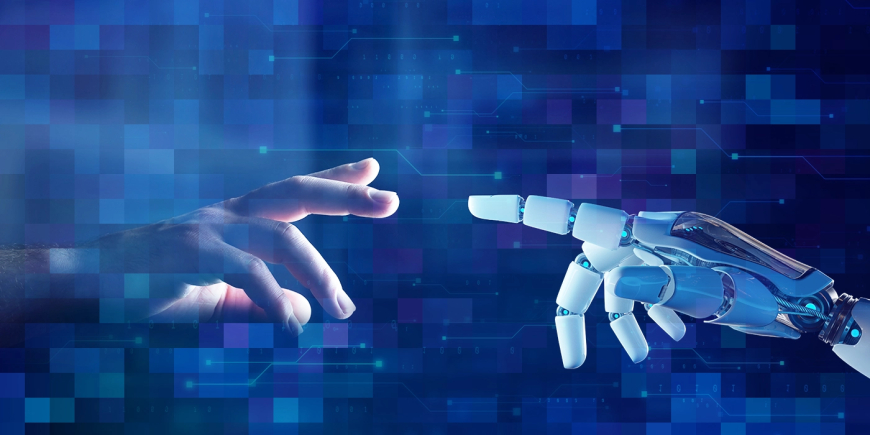AI’s Political Fault Lines: Worker Strikes, Automation Anxiety, and U.S.-China Tensions
AI is reshaping politics, triggering labor strikes, raising automation concerns, and fueling U.S.-China tensions. Policymakers face new ethical and strategic challenges.

Published: August 15, 2025
The rapid advancement of artificial intelligence (AI) is no longer just a technological concern—it has become a political flashpoint shaping domestic labor markets, international relations, and policy debates. From strikes in U.S. industries to heightened tensions between Washington and Beijing, AI is forcing governments, corporations, and workers to confront a rapidly evolving reality.
Labor Unrest Amid Automation Anxiety
Across the United States, AI-driven automation is reshaping workforces in sectors ranging from tech to manufacturing. Workers in companies deploying generative AI tools have increasingly voiced concerns over job security, pay stagnation, and surveillance-enabled productivity metrics.
Recent strikes by content moderators, tech engineers, and even automotive assembly workers reflect growing friction between employers eager to harness AI efficiencies and employees wary of displacement. Analysts note that labor unions are recalibrating strategies to include AI-specific protections, arguing that automation should complement human work rather than replace it.
“We are witnessing a pivotal moment where technology and labor intersect,” says Dr. Elaine Murphy, a labor economist at the Brookings Institution. “AI is reshaping bargaining power, job security, and workplace expectations simultaneously.”
The political ramifications are clear. Congressional hearings on AI ethics, worker displacement, and corporate responsibility are increasing, with lawmakers under pressure to balance innovation incentives with protections for affected workers.
Geopolitical Tensions: AI as the New Superpower Battleground
Beyond domestic labor concerns, AI has emerged as a central axis in U.S.-China strategic competition. Both nations are racing to dominate AI research, intellectual property, and military applications, framing the technology as crucial to national security.
Recent U.S. policy moves, including export controls on advanced AI chips and strategic investments in AI research, underscore concerns over China’s growing capabilities. Meanwhile, Beijing has accelerated its AI initiatives, emphasizing surveillance, industrial automation, and national defense applications.
This technological rivalry is not limited to military applications. Economic and diplomatic arenas are also affected. AI-driven supply chain innovations, financial market algorithms, and predictive analytics tools are all shaping how superpowers interact and compete.
“AI is now a tool of statecraft,” notes Professor James Liu, a technology policy expert at Georgetown University. “The geopolitics of AI will influence trade, cybersecurity, and global stability for decades.”
Policy and Ethical Dilemmas
As AI adoption accelerates, governments face unprecedented policy challenges. Regulations must address ethical considerations, from algorithmic bias to privacy concerns, while balancing innovation incentives. Lawmakers and regulators are grappling with questions about accountability, liability, and the societal impacts of automation.
In addition, AI-driven labor disruptions have prompted calls for social safety nets, including universal basic income pilots, retraining programs, and reskilling initiatives. Experts argue that coordinated policy responses are critical to mitigating social unrest and ensuring that AI benefits are widely shared.
The Domestic-International Nexus
AI’s domestic and international implications are intertwined. Labor unrest can influence trade policy and diplomatic priorities, while geopolitical rivalries shape investment flows, intellectual property protections, and cross-border research collaborations.
The U.S. political landscape reflects these pressures. Legislators face demands from tech companies, labor unions, and advocacy groups, while the Biden administration and Congress navigate strategic competition with China, all under the watchful eye of a public increasingly aware of AI’s societal consequences.
Looking Ahead
AI is no longer a background technology—it is a political force reshaping work, diplomacy, and governance. Policymakers, businesses, and civil society actors must anticipate cascading effects on labor markets, international relations, and ethical frameworks.
Experts warn that failure to address these fault lines could exacerbate social unrest, economic inequality, and geopolitical instability. Conversely, proactive governance, international cooperation, and worker-focused policies could position AI as a driver of innovation and societal benefit.








